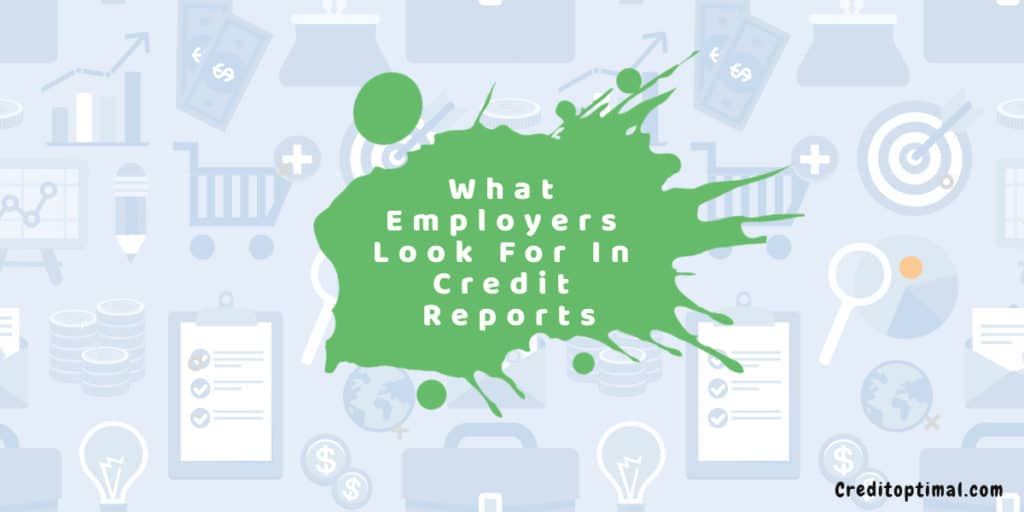When applying for a new job, you certainly comb through the best jobs, polish your resume and cover letter, and update them to show you’re the best candidate for the job.
During the interview, things that would make you stand out from the rest of the applicants include being well-versed with the company’s goals, vision, and perform thorough research to help you answer typical company questions.
However, there is one significant thing you need to put inherent focus as it might be the make or break factor for you to get the job: your credit report.
Your credit report speaks volumes about how you spend your money, and the company uses it to evaluate how you would manage their finances.
Before hiring you, the potential employer might request your authorization for a background screening of your credit report to evaluate your competence in handling sensitive data and managing finances.
In this article, we’ve highlighted what you need to know about the credit report check before hiring.
Your legal rights
The FCRA has a set of regulations that protect your fiscal privacy and protect confidential financial information from landing in the wrong hands.
To clear any doubts, no potential employer can check your credit report without your consent. Essentially, you have to sign an acknowledgment form to confirm and give them consent to run a credit check.
Besides, they have to clearly explain what they are doing by presenting what they want to do in fine print through the following ways:
- Explain to you through official communication channels that they need to gather some information before making a hiring decision. This communication should be in a separate document from your employment application form to make it as transparent as possible.
- Receive written confirmation from you, granting permission for them to perform the check. You can write to them using the same document they initially sent or use your preferred way. Confirm whether they’re requesting for a one-time credit check or if they’re seeking permission for recurrent credit checks in the future.
- The company should notify you should they reject your application based on your credit report. Besides, they should attach a copy of the report they used and make a summary of your rights under the FCRA regulation.
- Give you some time to dispute any errors in the report as well as respond to their hiring decision.
- After receiving your response about their hiring decision, the employer should provide written communication of their final decision and information about the reporting company that gave them the credit report. They should also attach a confirmation that you have two months (60 days) to get a free copy of your report and dispute any information therein.
- A confirmation from the employer that they’ve gotten rid of your report and any information collected from it.
Why employers check your credit report
According to the 2018 HR.com report, over 50% of employers conducted credit checks on their potential employees, and the top reason for more than 85% of them was to protect employees and customers.
The credit report is a good tool to verify your background, identity, and education – which are crucial components to prevent theft, embezzlement, and check your relationship with previous employers.
For employers, this check is an incredibly large picture of how you can handle your responsibilities.
Keep in mind that if an employer performs a credit check on you, they’ve probably decided to hire you and are trying to check whether you’re in financial distress.
As a tool for weeding out a massive chunk of potential applicants, employers are likely to use credit reports when hiring individuals for handling financial roles such as accountants or retail roles.
The information that employers check in your report
Typically, employers see what a potential lender would see, excluding your date of birth and credit score.
A considerable amount of credit data shows that employers have a comprehensive check on the components of your credit report, such as credit history, insurance, and legal activity, as well as past employment. Although potential employers do not see your credit score, they check your auto and student loans, delinquencies, bankruptcies, collection accounts, and mortgages.
Below, we’ve compiled a list of checks your potential employer may perform.
Debt levels
Most job applicants often overlook their debt load, especially when they don’t know the potential employer would likely perform a credit report check. If you’ve been out of work for some time, it may be understandable that you took some credit card loans to accommodate your expenses.
However, a huge debt load could be a red flag since the employer would tell that you have limited control of your non-work life.
So, it is imperative to watch your debt levels, especially when you are applying for positions that entail handling finances or security clearances.
Judgments
A judgment shows the possibility of your wages being garnished, which isn’t an excellent picture you would want to show your potential employer. To offset the possibility of losing the job because of judgment, get your credit report from the three information centers and arrange for clearance of the debt.
Collection accounts
Unresolved collection accounts are a huge indication of the potential company that you’ve mismanaged your finances at some point.
Losing control of your financial life would make the company question your ability to manage finances, and they would less likely consider you for the job.
That said, it would be great if you arranged with a collection agency to clear the payment so that they close the collection account.
Delinquencies
Like unresolved collection accounts, late payments could be a substantial detrimental factor when looking for a job.
As long as the information in your report about late payments is accurate, you won’t be able to remove that information.
While this is undoubtedly bad news, you can compile a series of timely payments to present an image of reliability in the eyes of the lender.
Credit report check vs. Credit score
There is a considerable disparity between checking your credit report and credit score.
Your credit report includes all information regarding your fiscal life, including your balances, available credit, payment history, delinquencies, and lines of credit.
On the other hand, a credit score is a three-digit number that sums up the efficacy of your credit utilization. A good credit score ranges between 300 and 850 – which means that you’re good at handling your finances and that you stand a high chance of getting good quality loans and favorable interest rates.
Potential employers would only check your credit report, and not your credit score. This means that they have a legal right to request for information included in your report, excluding your credit score.
Positions that would make potential employers perform a credit check
Companies often check your credit report if you’re applying for jobs like a top manager or want to work with finances like an accountant or store clerk.
If you have all qualifications for being in a managerial position, you’ll likely get turned down because of bad credit.
Positions such as delivery driver or salesperson wouldn’t require a complete credit report – which means that you shouldn’t worry about “marginal credit” if you’re applying for these positions.
Beyond the apparent check performed on your finances by potential employers, credit reports are excellent tools for verifying your identity and checking your relationship with previous employers.
Overall, there are variations in the information the company checks, and the value they put in your profile’s components.
Can you get rejected for a job due to a bad credit report
Different states have laws that guard how companies decline an application based on the applicant’s credit report.
While a bad report may be the sole contributing factor for rejection, the company might as well use a collation of other different components.
If an employer checks your report, they would likely consider other elements of your application, such as previous cases, educational background, and references from the organization.
If every element of your application is perfect except your credit report, you shouldn’t worry since the report isn’t a make or break factor for getting the job.
Can this credit check tank your score?
A credit check performed by your potential employer wouldn’t hurt your credit score.
This check is more like a “soft inquiry,” that isn’t visible to other parties apart from you and would certainly not be considered in credit score models.
Typically, employers assess your fiscal behavior over a long period, spanning between four to seven years, unlike lenders who consider your short-term history.
If you have a considerable “financial dent” spanning a few years, your employer might reject your application even your most recent transactions show good fiscal behavior.
Final thoughts
Since employers use credit reports to evaluate your financial habits and ascertain whether or not you’re suitable for handling their finances, you should pay utmost focus on your report.
Well, you undoubtedly don’t want to be caught off-guard by realizing that there is something negative on your report after sending your application.
Every year, you’re entitled to a free credit report from either of the three credit reporting agencies – TransUnion, Equifax, and Experian – and you should retrieve these reports to check your financial history.
Overall, maintain good fiscal habits and get rid of any negative entries in your report to have a good job application profile.


